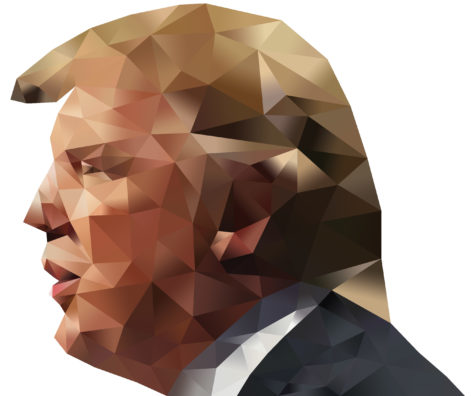Experts describe possible impact of Trump’s policies
 As the second presidential debate came to a close, Republican nominee Donald Trump shook hands with Democratic nominee Hillary Clinton, marking the official conclusion of an otherwise heated 1.5 hours of conversation.
As the second presidential debate came to a close, Republican nominee Donald Trump shook hands with Democratic nominee Hillary Clinton, marking the official conclusion of an otherwise heated 1.5 hours of conversation.
Among the proposed policies discussed during the debate were Trump’s plans to reduce taxes for people of all incomes and enforce stricter immigration laws. Trump has also expressed an intent to increase the size of the U.S. military.
“We’re going to make great trade deals, we’re going to have a strong border, we’re going to bring back law and order,” said Trump during the debate. “… It’s called ‘Making America Great Again.’”
According to Laurel Harbridge Yong, associate professor of political science at Northwestern University and faculty fellow at the Institute for Policy Research, the success of the candidates’ tax plans, such as Trump’s plan to reduce taxes across all incomes, hinge on assumptions about the economy. These assumptions include whether the economy will continue to grow at the present rate, at a faster rate or at a decreased rate as well as assumptions about government spending and whether it will stay the same, grow or shrink.
Senior Griffin Mattson said he hopes that Trump’s fiscal policies — such as his intent to reduce taxes for people of all incomes while working to strengthen the American economy — will positively impact Mattson in the future.
“I think that you can’t make any social changes when you have a country that can’t even pay for any changes to happen, … so if you have a kind of nation that cannot afford to do anything, then it can’t really move forward,” said Mattson. “That’s why fiscal issues are really more important to me than social issues.”
In addition to economic policies, Lilly Goren, professor of political science at Carroll University, said students should take into account the immigration and foreign policies of the candidates.
Goren said the high estimated cost of Trump’s plans to build a wall between Mexico and the United States, if the United States pays the expenses of the wall, and his plans to deport undocumented immigrants would have a long-term impact on the U.S. economy.
“For high school students, [part of that policy’s impact] is about how much the debt and the deficit of the United States would likely increase and also the potential impact on civil liberties of many individuals, including high school students,” Goren said.
Senior Sarah Jiang said she is concerned about how Trump’s stance regarding immigrants and minorities could impact her as an Asian-American woman.
“As a minority, as a woman, as an Asian person … I cannot prioritize [Trump’s] financial policies over his social policies when his social policies would directly affect my life,” Jiang said.
According to Goren, Trump’s foreign policies, if implemented, could also directly affect current students through the use of a military draft.
“I think that some of the inclinations that Trump has articulated with regard to potential military conflicts abroad might require ultimately increasing substantially the size of the U.S. military, which would require a draft, and high school students — 18-year-olds — would be the ones who would likely be drafted,” Goren said.
Although Jiang opposes drafts “on a moral level,” Jiang said the concept of drafts is “tricky” because she would not object to being drafted under a non-Trump administration.
“I’d go to war for America, but I wouldn’t go to war for Trump,” Jiang said.
Gillian Peele, associate professor of politics at the University of Oxford, said she notices the international concerns associated with a Trump presidency on a day-to-day basis, especially in England where she lives.
Peele said that individuals in England “overwhelmingly” favor Clinton, although “many have doubts about her” as well.
“Few informed observers believe Trump has any knowledge of foreign policy and would be a loose cannon, so working out the implications of what he stands for or [what] his policies would mean is hard,” Peele said.
According to Harbridge Yong, it is important for students to recognize that presidents do not “unilaterally implement the policies they want,” due to the system of checks and balances within the U.S. government. But, students can find good reasons to support either party depending on how students prioritize different issues and what positions they take on those issues.
“I definitely don’t think that young people should support one specific party,” said Harbridge Yong. “[The] more engaged you are, the better chance you have to have your voice be heard in politics and as a group and collective of young people as well.”

